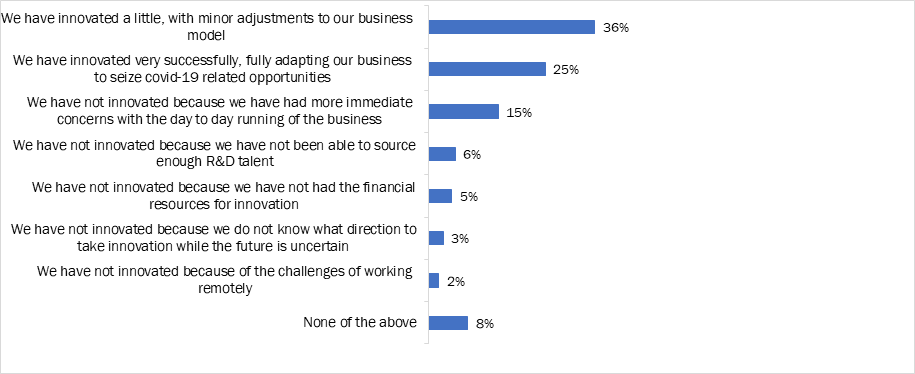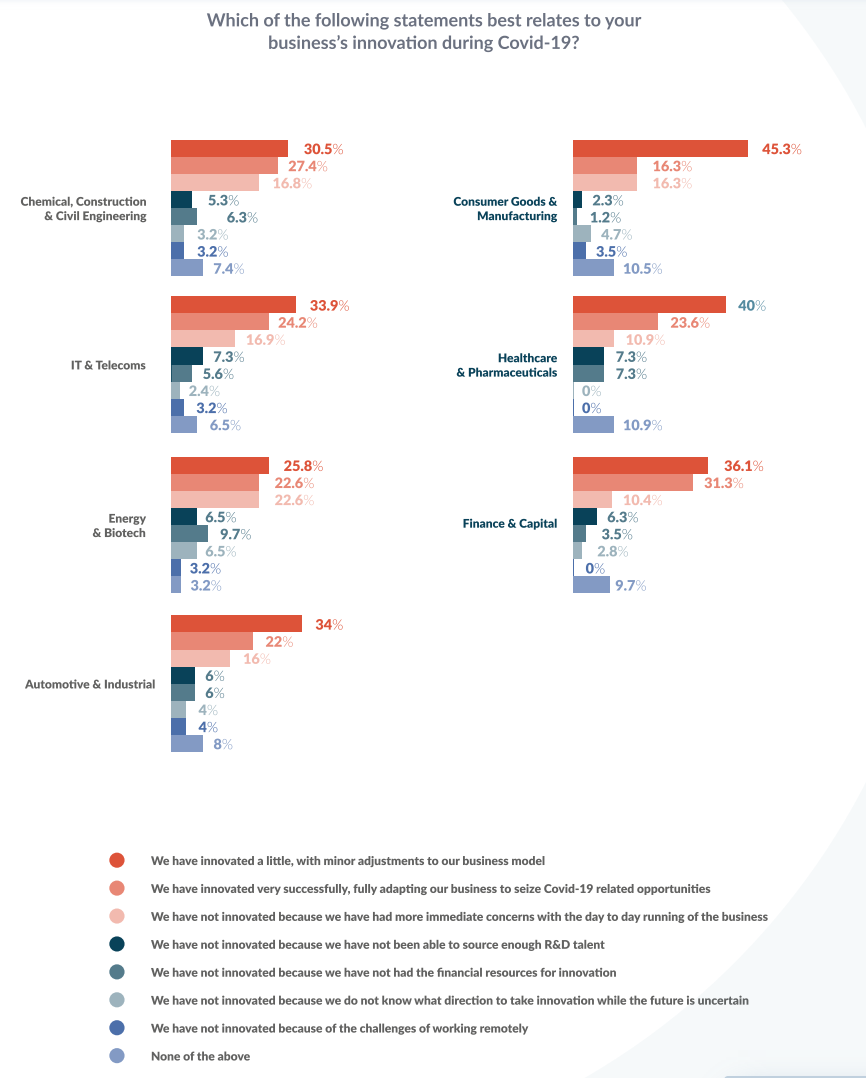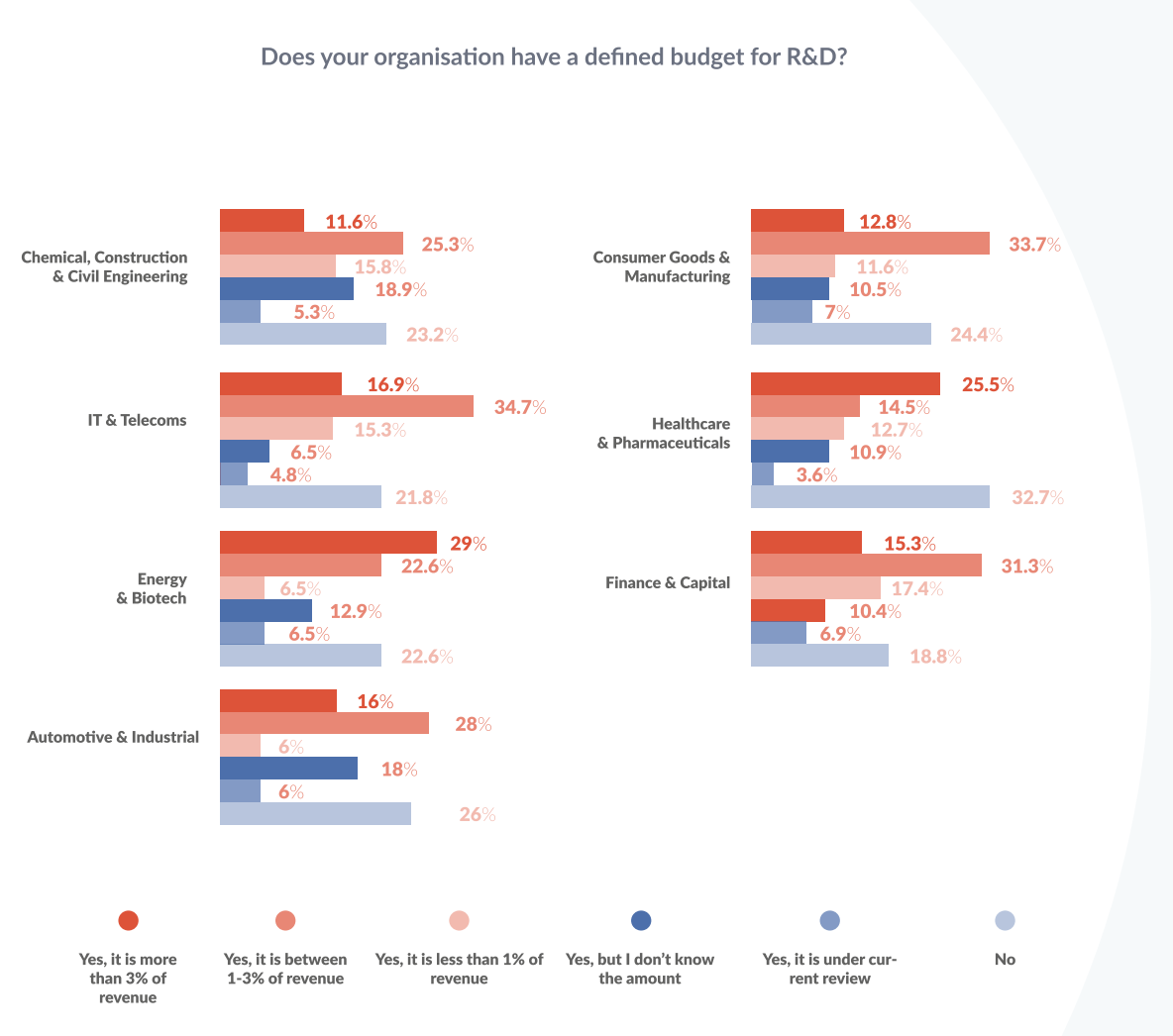Many companies have talked about the pandemic as a catalyst for speeding up change.
Government slogans like “Build Back Better” and a record spending ($10bn+ so far this year) on corporate venturing give the impression that businesses “leaned in” to increase their focus on innovation during the crisis.
But there is another — less publicised — side to the Covid story.
Around 31% of companies failed to innovate during the crisis, with the industrial, automotive, energy and biotech sectors the most affected, according to a recent study published by Ayming, the management consultancy.

While more than half of companies (57%) say they are hopeful of innovation budgets increasing from here, the percentage of people who are not sure where budgets are going has increased to 10%.
This is not good news for the innovation consultants and startups that companies normally work with — companies have decreased external collaborations like these. Some 67% of companies did all their innovation in-house this year, compared with 58% previously.
It is a noticeably gloomier outlook for innovation than last year, says Mark Smith, partner at Ayming. “Last year the pandemic was still in its infancy and there was still an awful lot of optimism. People have more a realistic view now of the impact the pandemic will have.”

Why the gloom?
Some 15% of companies slammed the brakes on innovation because the survival of the business took precedence over everything else, according to the report.
“The main reason here is funding. R&D budgets are calculated on the income of the company, so some have come down drastically,” says Olivier Taque, innovation project manager at Germany engineering services company Bertrandt, commenting on the findings.
The next most common reason for stopping innovation — cited by 6% of the 585 innovation leaders and senior managers who took part in the study — was the lack of R&D talent.
“There is a real battle for the most talented scientists, engineers, software developers, that is putting a drag on things,” says Smith. The talent problem has been compounded by the isolation that coronavirus-related restrictions imposed on workers.
“I suspect we will have fewer responses to our internal innovation programme this year because we’ve had 300 people who have not worked for a year-and-a-half, and innovation projects require a certain energy and pragmatism,” says Taque.
Smith agrees: “There was something about the in-person interaction that is absolutely vital for creativity and innovation. Get two colleagues physically sitting together and they're sparking some ideas, that was never going to happen on the Microsoft Teams,” he says.
“You’ve got 18 months of missing out on that spontaneous interaction and generation of new ideas in a lot of industries. We're going to still be feeling the after-effects of that in one to three
years time.”

The Ayming International Innovation Barometer report, which surveyed senior leaders across 7 business sectors in 14 countries, paints a picture of generally eroding confidence and spending when it comes to innovation.
The number of companies with a defined R&D budget has gone down from 90% to 77%, and the number of respondents who feel that their organisation undertakes enough innovation fell 14 percentage points, from 85% to 71% this year.


